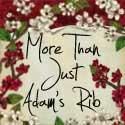 No matter how much we may romanticize about the simplicity of life in the past, for those first Americans moving westward across the plains, life out on the prairie was not at all an easy life to be coveted, especially in the winter.
No matter how much we may romanticize about the simplicity of life in the past, for those first Americans moving westward across the plains, life out on the prairie was not at all an easy life to be coveted, especially in the winter.Bone-chilling months spent in mud-chinked cabins stretching meager rations around a never warm enough wood stove? No snow plow to clear the roads for a horse ride through a blizzard to find help?
No. I'm not willing to transport myself back in time, leave behind the modern creature comforts of indoor plumbing, central heat, and food more plentiful than any generation before has seen.
But one thing I would like to keep from that by-gone era is their way of celebrating Christmas, the simplicity of it all compared to the mad sprint to New Year's that Americans seem to love and hate all at the same time.
The part of Laura Ingalls' Christmas I'd most like to transport into the twenty-first century is their concept of gifts. Ma and Pa didn't have much extra money, so most of the gifts were not store bought. In fact, the most treasured gifts came from the heart, from someone's investing time in another by hand crafting a gift.
I've often wondered what would happen if we just said no to the gift-giving madness at Christmas, the kind of madness where you make a list, check it twice, and then buy something, anything, just for the sake of not hurting someone's feelings.
My friend only tonight asked what I wanted for Christmas, but I don't want or need anything, not really. What I would love, though, is time with her, something we don't usually have because of raising two families a road hour apart.
Although I have yet to convince my entire family that a gift of time is what I really want to give and receive, I'm trying to break down their preconceived notions of Christmas by giving gifts that I invest myself in.
Last week, my children received part of their Christmas gift, simple crocheted hats that I made from a pattern by designer Elizabeth Alan who has adorable, easy patterns for sizes newborn through toddler (you'll be seeing more of her here!). Even if you're not a fantastic crocheter, her patterns are simple, include pictures for those "huh?" moments, and have helpful YouTube videos.
 While her pattern technically was intended to be this precious little holly leaf beanie for 3T and under, I have boys...dirt-pile, earth-mover, tree-climbing boys. Ribbons don't exactly fit the bill around here. After adding three stitches increase to make her pattern big enough for my five year old son, I created eyes and a beak, then called the braids "wings." Voila...birds.
While her pattern technically was intended to be this precious little holly leaf beanie for 3T and under, I have boys...dirt-pile, earth-mover, tree-climbing boys. Ribbons don't exactly fit the bill around here. After adding three stitches increase to make her pattern big enough for my five year old son, I created eyes and a beak, then called the braids "wings." Voila...birds.
 I thought I would add a flower on my daughter's hat, but no. Amelia wanted to be a bird, too. The mistake I made was in letting her wear the hat before I had added the eyes and beak. When she saw herself in the mirror, she had an absolute show-stopping meltdown in a public bathroom. When my mother could finally understand Amelia through the tears, her only words were, "Not a bird!!! Not a bird!!!"
I thought I would add a flower on my daughter's hat, but no. Amelia wanted to be a bird, too. The mistake I made was in letting her wear the hat before I had added the eyes and beak. When she saw herself in the mirror, she had an absolute show-stopping meltdown in a public bathroom. When my mother could finally understand Amelia through the tears, her only words were, "Not a bird!!! Not a bird!!!"Three precious little sparrows. (Or a bluebird, purple finch, and peacock if you ask them.)
Even if you don't know a crochet hook from a cake tester, maybe you could give the gift of your time in some other way. Perhaps it is offering to help with a project around the house that you've been ignoring, offering to spend the day with someone or maybe just do lunch. Or perhaps you could show your love by giving a homemade baked goodie, maybe these heart-shaped Christmas cakes like the ones Ma Ingalls put in stockings for her girls.
Whatever you choose. Choose to invest yourself in your friends, your family, your gifts this Christmas. Don't let gifts be a "just because" thing.
Let our heavenly Father be the example. For His Christmas gift to us, He invested Himself wholeheartedly, giving His only son, a Savior in a lowly manger.
(While there's something probably better out there, I'd be happy to send anyone my pattern for the eyes and beak if you're interested.)
















